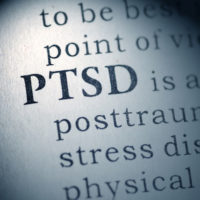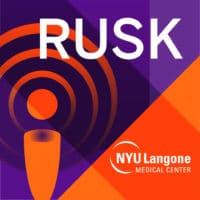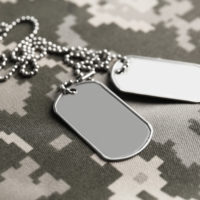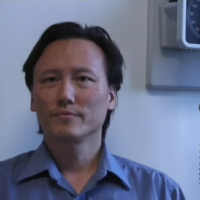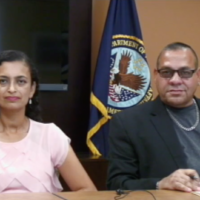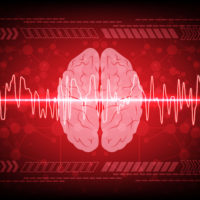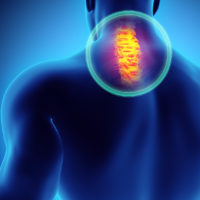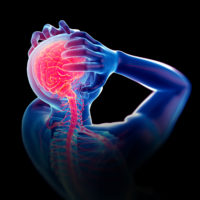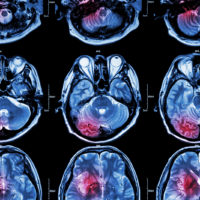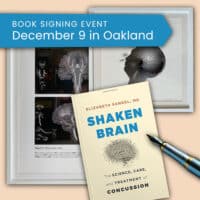Archive
Brain Injury Diagnosis & Treatment
How are traumatic brain injuries diagnosed, and what treatment is recommended for concussions and other brain injuries?
Discussion with Dr. Ernie Bryant
Dr. Ernie Bryant is a neuropsychologist with decades of experience treating people with brain injuries of all severities, including concussion. What is a neuropsychological evaluation? Dr. Bryant presents a case of a worker whose neuropsychological examination was complex as is often the case with brain injuries, especially concussions.
Veterans Can Face Both a Brain Injury and PTSD
Post-traumatic stress disorder can co-occur with a brain injury in military and civilian populations. Screening tests for PTSD should be used for any patient with a brain injury or suspected concussion. Symptoms for these two conditions can overlap, but all symptoms require management regardless of cause.
Cognitive Deficits In Veterans After Brain Injury
Cognitive deficits experienced by military personnel and others can be successfully treated with cognitive therapies.
The Emotional Consequences of Brain Injuries in Military Personnel
Military servicemen and servicewomen need early neurologic and psychiatric evaluations and comprehensive treatment after a traumatic brain injury.
Dr. Elizabeth Sandel: Former AAPM&R Executive Discusses Critical Elements of the Field
In part one, Dr. Sandel talks about physical medicine and rehabilitation and it’s broad scope. In part two, she discusses her mission to educate the public about brain injuries, including concussion. In part three, she discusses what happens to the brain with concussions and repeated concussions. She ends with a case of a patient with a complex diagnosis after a traumatic event that required the diagnosis in order for the best treatment approaches.
A Veteran Talks About his Brain Injuries and Care at the VA
A veteran talks about his experiences with several concussions, and his successful treatment with cognitive and group therapies at the Veterans Administration program in Martinez, California.
Modeling Brain Injury Care in the VA System
Dr. Anthony Chen is a neurologist specializing in the evaluation and treatment of veterans with traumatic brain injuries. Dr. Chen discusses the treatment of cognitive disorders that occur after these injuries, and the common co-occurrence of post-traumatic stress disorder and other mental health conditions in people with a history of…
Causes of Brain Injury in Military and Veterans
Interview with physiatrist Dr. Hetal Lakhani and 38-year Army veteran, Richard Reyes, who sustained three brain injuries during his military career.
Military Blast Injuries Can Injure More than the Brain
Military blast injuries can impact the brain, the lungs, the heart, and other organs in the body. Early diagnosis is very important.
Parents and Sports-Related Concussions
Michelle Camicia, MSN, PhD, the mother of two student athletes, discusses the role of parents who must pay attention to their childrens’ symptoms if they play contact sports. Are these symptoms consistently understood by student athletes and coaches? She argues for more education and advocacy to address the problem of…
Comprehensive Care of Concussions
Dr. Richard Delmonico, a neuropsychologist, outlines the approaches to triage and treatment in a concussion clinic in the Northern California Kaiser Permanente health system. He also discusses the uses of neuropsychological testing to help with diagnosis and management of people with concussions and other brain injuries.
Concussions in College Athletes
Dr. Melita Moore, a physiatrist, sports medicine doctor, and brain injury medicine physician reports about her experiences when she served as the physician for University of California Davis sports teams. She discusses collision sports such as football and soccer that have a high incidence of concussion, but also other sports…
Concussion Alliance Co-Founders Interviewed for Slate Article
More and more journalists are writing about concussion, in many cases because they have had a concussion themselves or have friends or relatives who have experienced one. In March, 2024, Isobel Whitcomb interviewed Concussion Alliance co-founders Conor Gormally and Malayka Gormally for an article in Slate. It is concerning that bad medical advice (“just rest”) is still being given to concussion patients as is clear in Whitcomb’s story.
Concussion Care Highlighted in The Atlantic and Bloomberg News
I collaborated recently with Conor Gormally of Concussion Alliance to advocate for individualized and comprehensive concussion care in mainstream news stories with journalists who recounted personal stories of concussion. Here’s what The Atlantic and Bloomberg published.
The 6th International Consensus Statement on Concussion in Sport–What’s New?
The Statement summarizes scientific research and provides some updated recommendations for athletes at risk for concussions. But, it’s been mired in controversy regarding the strict criteria governing which research was included. Read Dr. Sandel’s insights into the process and conclusions.
What Is Cognitive Rehabilitation Therapy?
Cognitive Rehabilitation Therapy (CRT) is an evidence-based approach to addressing multiple cognitive impairments caused by a traumatic brain injury. Restorative CRT strengthens cognitive abilities, and compensatory CRT provides strategies to reduce the impact of deficits.
Patient-Centered Concussion Care
Presenting to the physical medicine and rehabilitation (PM&R) residents at the UC Davis School of Medicine sparked a lively exchange about patient-centered concussion care. Learn more about the challenges and possibilities for transforming concussion care.
Three Alternative Treatment Modalities to Ease Brain Injury Associated Symptoms
Conventional treatments like medications may not help symptoms after a brain injury. Complementary or alternative treatments may help.
Check the Neck after a Brain Injury
Whiplash and cervical strain occurs when a person’s head and neck are forced back and forth, injuring soft tissues of the neck. They are common after brain injuries.
Evaluating and Treating Headaches After Brain Injury
Headaches are extremely common after a traumatic brain injury, but there are various treatments that vary depending on the phenotype or cause.
Post-Traumatic Headaches: Not Just One Type or Treatment
Headaches must be evaluated with a comprehensive history and physical examination. There are many options for treatment, but diagnosis has to be the first step.
Brain Imaging after an Injury
CT and MRI scans are the most common imaging modalities to evaluate people with traumatic brain injury, but advanced imaging methods are more promising for diagnosis and prognosis. However, interpretations of findings can vary.
Treatment and Prognosis after a Concussion
Learn about treatments for post-concussion symptoms—including medication, various rehabilitation therapies, neuropsychology, and potentially some complementary therapies—as well as factors related to longer concussion recovery times.
Meet Dr. Sandel at the Book Signing Event on December 9
Join Dr. Sandel in Oakland on Friday, December 9 from 4:30-6:30pm for a “Shaken Brain” book signing event. Presented by Kim Cole Real Estate.
Keep up to date
Get updates on the latest in concussion, brain health, and science-related tools from Dr. Elizabeth Sandel, M.D.
By clicking SIGN UP, you agree to receive emails from Dr. Sandel and agree to our terms of use and privacy policy.

